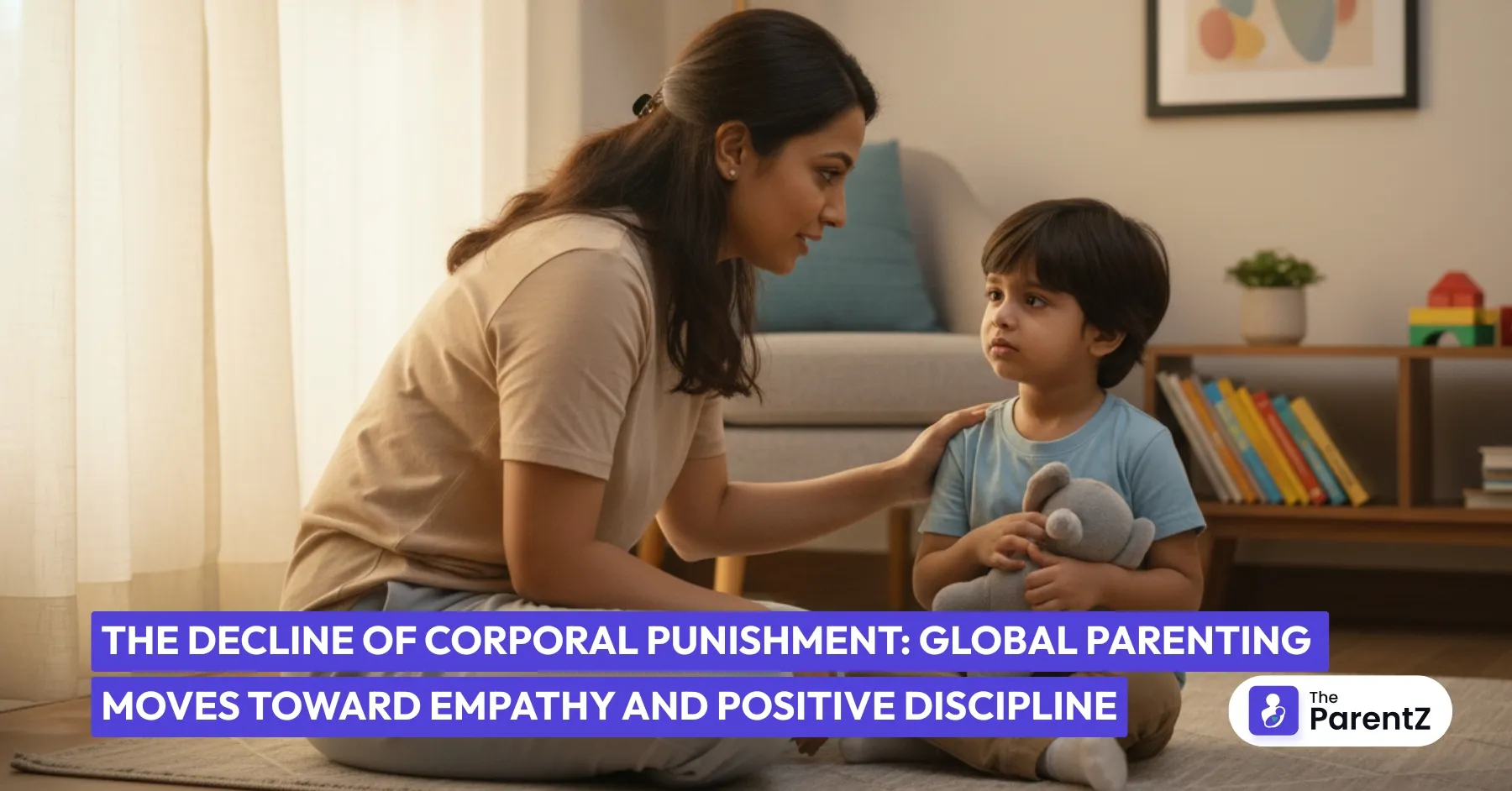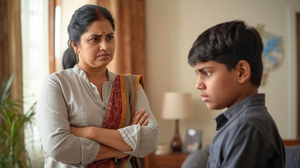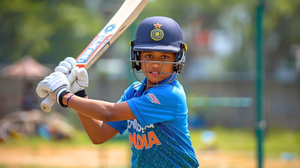Remember when "wait till your father gets home" was the scariest sentence a child could hear? Or when a wooden spoon wasn't just for cooking? If you grew up in the 80s or 90s, chances are you've experienced corporal punishment firsthand. Maybe you turned out fine. Maybe you tell yourself it taught you discipline.
Fortunately, parents around the world are putting down the belt, the ruler, and even the hand raised in anger. And it's not because they're being "soft" or raising spoiled kids. It's because we now know better.
What's Actually Changing
The shift is real and it's global. More than 60 countries have now banned corporal punishment completely, even at home. Places like Sweden started this back in 1979. Now, countries across Europe, South America, Africa, and Asia are following suit.
But the bigger change isn't happening in courtrooms. It's happening in living rooms, bedrooms, and kitchens. Parents who were spanked as kids are choosing not to spank their own children. They're reading books on positive discipline, watching parenting videos, joining support groups, and learning a completely different way to raise kids.
Why This Shift Was Needed
For generations, hitting children was just normal. It was what everyone did. Your parents did it. Their parents did it. It was called discipline, not violence.
But then researchers started actually studying what happens to kids who get hit. And the results weren't pretty.
Kids who experience corporal punishment are more likely to have anxiety and depression. They're more aggressive with other kids. They struggle with self-esteem. Some studies show it even affects their brain development. Instead of learning right from wrong, they learn to fear their parents. Instead of developing internal discipline, they just learn to avoid getting caught.
Here's the thing many parents realize: you probably succeeded in life not because of the spanking, but in spite of it. You had other things going for you; maybe a parent who also showed love, teachers who believed in you, or your own inner strength.
Why Parents Are Making This Change
Talk to parents who've moved away from hitting, and you'll hear similar stories. Many say things like:
"I saw the fear in my child's eyes, and I hated myself."
"I realized I was repeating what my parents did, even though I promised myself I wouldn't."
"There was this moment where I saw myself from the outside, and I looked like a bully."
The research helped, sure. But mostly, it's this gut feeling that there has to be a better way. Because when you really think about it, we don't hit adults when they make mistakes. We don't hit our friends, partners, or coworkers. We've all agreed that hitting another adult is assault.
So why would it be okay to hit someone smaller and more vulnerable?
What Actually Works Instead
"But then how do I discipline my kid?"
The answer is: you still set boundaries. You still have rules. You still teach right from wrong. You just do it without hitting.
Positive discipline means explaining why something is wrong. It means natural consequences. If your kid breaks a toy in anger, they don't get a new one immediately. If they refuse to do homework, they face the consequences at school.
It means time-ins instead of time-outs, where you sit with your upset child and help them understand their feelings. It means using words, even when you're frustrated. It means apologizing when you mess up, so your kids learn that adults make mistakes too.
Does it take more patience? Absolutely. Does it work overnight? No. But neither did hitting, if we're being honest.
The Impact We're Already Seeing
Kids raised with positive discipline aren't spoiled brats. They're actually better at self-regulation. They're more empathetic. They communicate better. They're less violent with siblings and peers.
These kids grow up with better mental health. They have better relationships with their parents; genuine relationships built on respect, not fear. They learn to solve problems instead of just avoiding punishment.
And they're breaking the cycle. When these kids become parents themselves, they don't have to unlearn the urge to hit. It was never there to begin with.
You Can Make This Change
If you were raised with corporal punishment and you're trying to parent differently, I see you. It's hard. Sometimes your hand rises automatically. Sometimes you hear your parents' words coming out of your mouth.
That's normal. You're rewiring decades of programming.
Start small. When you feel that anger rising, pause. Take three deep breaths. Step away if you need to. Remember that your child's brain is still developing. They're not trying to disrespect you—they're learning how to be human.
Find your people. Join parenting groups. Read books. Watch videos. You don't have to figure this out alone.
Conclusion
Choosing not to hit your child doesn't mean you love them more than your parents loved you. It just means you have access to information they didn't have. You're building on what they did right and changing what didn't work.
Your kids will thank you for it. And you'll probably thank yourself too.
The world is changing, one family at a time. And you get to be part of that change.





Be the first one to comment on this story.